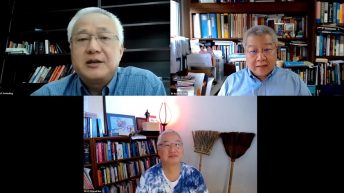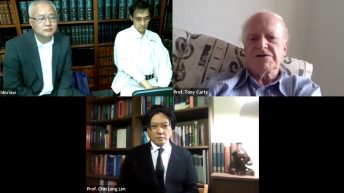Date: 18Feb 2022
This talk develops a relational explanation for judicial corruption, namely, a spatial theory of institutional proximity, to complement existing behavioral and institutional approaches. Institutional proximity refers to the spatial proximity between adjacent political or social institutions, including courts. This proximity can be a result of political or administrative regulations, workplace interactions, or the mobility of individual actors between them. Linking ecologies and space travelers are two key spatial mechanisms through which institutional proximity enables judicial corruption. They pave the pathways of judicial corruption, that is, how corrupt transactions and related social interactions are facilitated by and communicated through institutions adjacent to the court. The theory is operationalized in the context of Chinese courts and the various pathways of judicial corruption are exemplified through a number of publicly reported cases in China.
Speaker:
Dr. Sida Liu received his LL.B. degree from Peking University Law School and his Ph.D. in sociology from the University of Chicago. He joined the Department of Sociology at the University of Toronto in 2016 after teaching sociology and law at the University of Wisconsin-Madison. He holds a non-budgetary cross-appointment at the Faculty of Law. Dr. Liu’s research interests include the sociology of law, organizations and professions, criminal justice, globalization, and social theory. He has conducted extensive empirical research on China’s legal reform and legal profession, including the globalization of corporate law firms, the political mobilization of criminal defense lawyers, the feminization of judges, and the career mobility of law practitioners. His current project examines China’s influence on the legal professions in Hong Kong and Taiwan. In addition to his empirical work, Professor Liu also writes on sociolegal theory and general social theory, particularly theories of social space and social process following the tradition of Georg Simmel and the Chicago School of sociology.
Discussants:
Xin He is a professor of law at the University of Hong Kong. He studies China’s legal systems from a socio-legal perspective. His recent monograph Divorces in China: Institutional Constraints and Gendered Outcomes was published by NYU Press in 2021 (one can enjoy a 40 percent author discount with the code “AU1916”). He also published a Chinese book《街头的研究者:法律与社会科学笔记》(The Researcher in the Street)(Peking University Press 2021). An avid Pingpong player, he was the champion (men’s single) of the Central and Western District of his age group in 2019.
Benjamin Chen is an interdisciplinary legal researcher interested in regulatory and judicial institutions. His current research examines the scope for consequentialist reasoning in law, the diffusion of policy through the courts, and the impact of artificial intelligence on justice and its administration. Benjamin graduated with a J.D., Order of the Coif, from the University of California, Berkeley in 2017 where he also received his Ph.D in Jurisprudence and Social Policy. He is admitted to practice in the State of California. In addition to his legal qualifications, Benjamin holds a M.A. in Philosophy from University College London, a M.S. in Applied Mathematics from the Ecole Polytechnique, and a B.A. in Economics from the University of Chicago with a minor in Romance Languages and Literatures.
Chair:
Dr. Angela Zhang, Director of the Centre for Chinese Law at the University of Hong Kong




